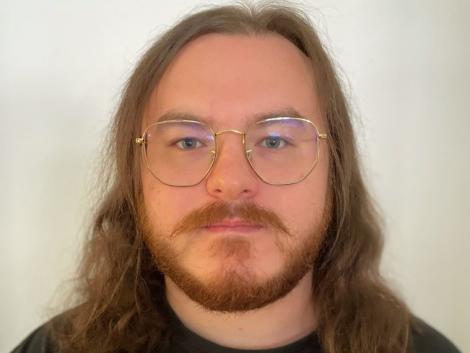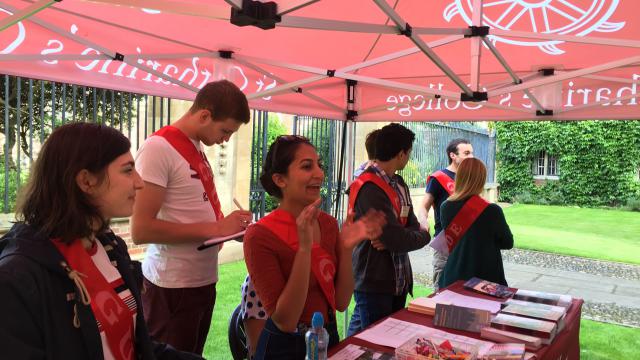Name: Hugo Small
Hometown: Cavarzere, Veneto, Italy
Extracurricular activities: Listening to music and playing the guitar, oboe and the Irish bouzouki, cinema, current affairs and video games
Degree: PhD in Anglo-Saxon, Norse & Celtic
Life before Catz
“I grew up with American parents in Italy, which I has been and remains my home. I did my undergraduate degree at UCL in Viking & Old Norse Studies, during which I learnt Norwegian and was able to spend a year abroad in Oslo, Norway. Then I came to Cambridge for my MPhil at Queens’ College.”
Life at Catz
“Life at Catz has been great. It is a very friendly college with a well-run Middle Combination Room (MCR) that organises many fun events in the College on behalf of postgraduate students here.”
Postgraduate studies
“My PhD research is focused on analysing feudalism in medieval Scandinavia from c.1000 to 1350 AD, paying particular attention to the peasantry of this region and its relations with the societal elites. I was inspired by my earlier studies of Viking and medieval Scandinavia, which led me to wonder about the socio-economic structure(s) behind the raiding, trading, feuds and politics of this period. I was also inspired by the idea of historical materialism as a ‘history from below’, which includes the majority of the population – slaves and peasants – into the grander historical narrative and events of the Viking and Middle Ages, thus having the potential to greatly deepen our knowledge of this field.”
The Harding Distinguished Postgraduate Scholars Programme
“The Harding Programme has allowed me to pursue my research with a greater degree of certainty and stability, giving me the resources and support to participate more fully in academic life (with conferences, travel, etc.). Furthermore, the award of the scholarship helped me feel that my research was truly meaningful. The programme has also put me into closer contact with a network of dedicated scholars. For all this I am extremely grateful.”
Advice for undergraduates thinking of applying for postgraduate studies
“This new course of studies may seem daunting and may seem to demand unreachable standards and results from your work. However, you can and will reach these standards over time and by developing your skills. After all that’s what a university is for, to help you learn and develop your academic skills. Never doubt your qualifications, but also listen to your teachers and supervisors and never be afraid to ask questions. Most importantly, especially when writing a thesis, focus mostly on the idea you want to communicate and work on this step by step, chapter by chapter, paragraph by paragraph. It will take time but eventually, it will come into shape. Always try to have fun with your research, as well, and keep in mind the things that you enjoy about your studies, and do not let them become a chore for you.”






